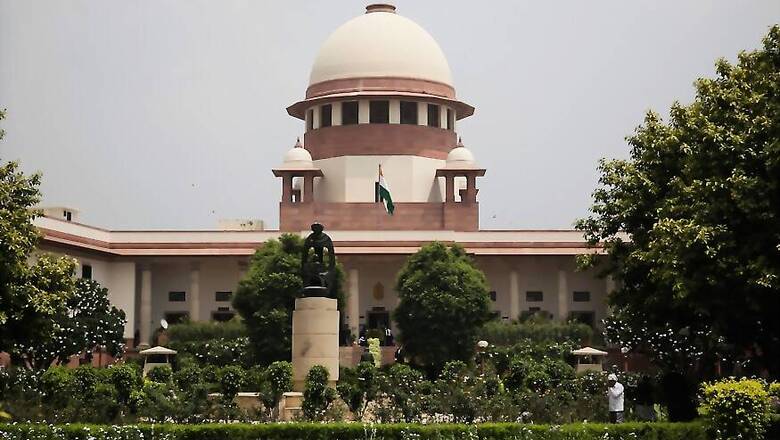
views
On October 24, 2019, in a landmark judgement, the Supreme Court upheld the Department of Telecommunication’s (DoT) contention and definition of gross revenue/adjusted gross revenue (AGR) as per the licence agreements which was agreed, accepted and signed by Telecom Service Providers (TSPs), the licensees.
Further, the court ordered TSPs to pay all outstanding dues of licence fees and spectrum usage charges (SUC), including interest and penalties, to DoT within 3 months. Such outstanding dues, along with interest and penalties, are in excess of Rs 92,000 crore till FY17.
In fact, the apex court came down heavily on TSPs for their unfair conduct in deliberately avoiding payment of legitimate dues pertaining to DoT’s revenue share on one baseless plea or the other, and repeatedly raising frivolous, baseless and untenable objections relating to definition of GR/AGR and its computation, and litigating for two decades.
Even the Supreme Court ruling of 2007 validating the AGR definition of the Licence Agreement as well as its clear judgement in 2011 clarifying what constitutes GR/AGR bringing absolute clarity on the issue did not deter TSPs from continuing with their wilful strategy of raising one dispute or the other. They pursued this when in fact there was no bonafide dispute, just to avoid full payment of the share owed to the government in violation of their contractual obligation to DoT. The final enforcement of the Rule of Law is a long-awaited victory of DoT.
Incidentally, the judgement is also a shot in the arm for the government which is looking for additional resources. Receipt of long pending dues will certainly help the government mitigate the current fiscal stress to some extent.
TSPs are now aggressively lobbying the government for giving them relief urgently in AGR-related payments citing their “poor state of finances”. However, under the current circumstances, there may be no case for the government to step in, given the background of the case, the water-tight judgement and the government itself being one of the aggrieved parties before the court. The government must also avoid encouraging wilful and unethical defaulters by giving them relief to the detriment of those TSPs who have paid their dues lawfully for years.
While it is true that payment of AGR related dues is a big setback for the TSPs concerned at the moment, it is also true that the affected incumbent TSPs, which are market leaders for a long time, are in any case very large, commanding big market shares and boasting of huge market capitalisation. They are also backed by great multinational companies with deep pockets.
In fact, these TSPs, in the course of their operations, have created highly valued businesses and assets in India as well as abroad out of the earnings from the Indian telecom market for the past two decades. Therefore, to assume that they are incapable of paying dues is naive at best and preposterous at worst. These TSPs have the full capacity to pay AGR-related government dues within the time frame set by the Supreme Court. However, what is now important is the willingness to pay which was missing earlier.
This may temporarily have some adverse impact on the financial health of the weaker ones, but is utterly manageable by them. The competition in the market place which got heated up with the entry of a new operator with new technology and new business model three years ago has already settled to desirable levels. The revenue dip during this period has already bottomed out. Signs of revenue growth are clearly visible.
If the promoters believe in India’s immense business potential — there is humongous value remaining to be unlocked — they will pump in the requisite money to overcome the current temporary phase to reap huge benefits in future.
I firmly believe that no one can ignore a vibrant, dynamic, potentially rewarding Indian digital communications services market and Airtel and Vodafone Idea who are well ensconced leaders in this happening market cannot allow a huge business opportunity in the adoption of 4G and 5G to slip away.
(SS Sirohi is a former member (Technology), Telecom Commission (now Digital Communications Commission). Views are personal.)
Disclaimer: News18.com is part of Network18 Media & Investment Limited which is owned by Reliance Industries Limited that also owns Reliance Jio




















Comments
0 comment